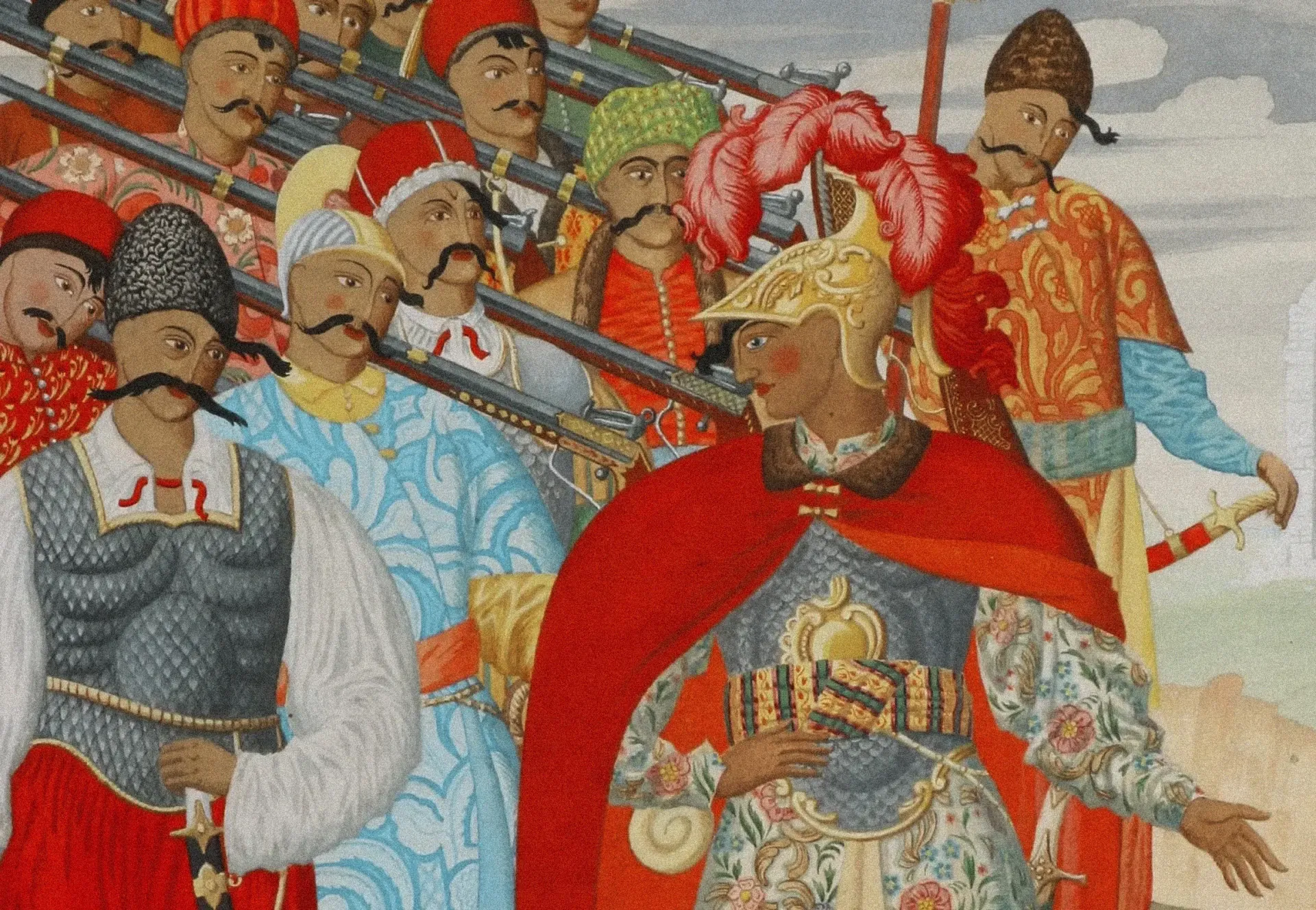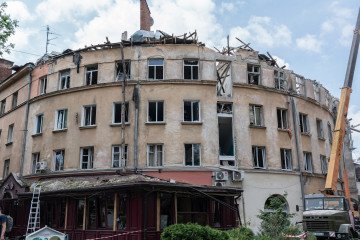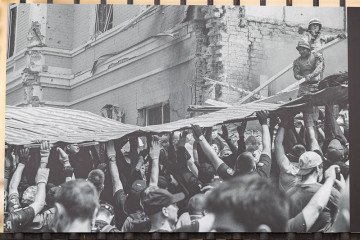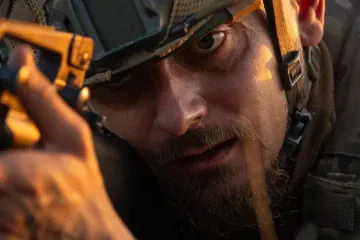- Category
- Culture
How Russia Tried to Erase The Ukrainian Language, But Failed

From Tsarist decrees to Putin’s propaganda, Russia has long aimed to erase the Ukrainian language. This chronicle of oppression reveals why Ukrainians are fighting so fiercely for their identity—and their right to speak.
For centuries, the Ukrainian language has stood as a cornerstone of Ukrainian identity, a vibrant testament to the nation’s rich history and cultural heritage. Yet, this very essence of Ukrainian existence has faced repeated assaults from its problematic eastern neighbour—Russia. Today, amidst the ongoing war, Russia’s conquest of eradication of the Ukrainian language has reached a fever pitch, revealing a deliberate strategy of cultural genocide.
Lessons in Linguistic Oppression
To fully grasp the gravity of this situation, we must dive into the historical context.
In 1876, the Tsar’s Ems Ukaz banned Ukrainian-language materials, igniting a century of Russification, meaning deliberate policies aimed at erasing Ukrainian identity. Schools switched to Russian, books were burned, and cultural expression was stifled. Building upon the Tsar’s groundwork, the Soviet Union ushered in a new era of linguistic oppression. From the 1930s onwards, policies like Ukrainization, initially intended to bolster local control, were swiftly reversed. Under the new Russification policy in the late 1930s, Russian became the dominant language in education, administration, and media, while Ukrainian publications faced censorship and suppression. This systematic Russification in Ukraine aimed to dismantle Ukrainian identity, replacing it with a homogenised Soviet narrative.
Even during periods of relative autonomy, the Ukrainian language remained under constant pressure. The infamous language law of 2012, implemented by the pro-Russian Yanukovych party, significantly expanded the use of Russian in various regions by granting it official status alongside Ukrainian. While not explicitly banning Ukrainian, it created conditions where Russian could dominate in administrative, judicial, and educational spheres within designated regions. Feels like we’ve heard this one before, right? Luckily, this law faced strong opposition and was eventually repealed after Yanukovych’s removal.
Similarly, attempts were made to introduce mandatory Russian language classes in all Ukrainian schools, even in predominantly Ukrainian-speaking regions. This move also raised concerns about the potential Russification of the education system.
The 2014 annexation of Crimea and the following war in Donbas marked a significant escalation in Russia’s linguistic aggression. Ukrainian media and educational institutions were shut down, and replaced by Russian counterparts. The use of the Ukrainian language in public spaces was restricted, and Ukrainian speakers faced intimidation and persecution.
Today, in the wake of the full-scale invasion, Russia’s destruction of the Ukrainian language has become even more blatant. In temporarily occupied territories, Ukrainian books are burned in public squares, teachers are forced to teach in Russian, and children are abducted and sent to Russia for “re-education.” The internet is redirected to Russian sources, further isolating Ukrainians from their own culture and information. People are kidnapped and tortured just for speaking Ukrainian.
Erasure and Absorption: A Step-by-Step
But the brutal assault on the Ukrainian language is not a random act of war; it’s a meticulously crafted tactic within a broader strategy of erasure and absorption. This agenda aims to obliterate Ukrainian identity at its core, paving the way for the nation’s eventual absorption into a unified “Russian world.”
The Kremlin’s playbook employs the following approach.
Step One: Silence Voices
Ukrainian books are ceremoniously burned, teachers forced to parrot Russian narratives, and children abducted for “re-education”—all orchestrated to eliminate language as a vessel of Ukrainian history, culture, and self-expression. This systematic silencing aims to sever the link between Ukrainians and their identity, leaving them vulnerable and disoriented.
Step Two: Re-write History
Denials of Ukrainian existence as a distinct nation run rampant. Russian officials portray Ukrainians as “Little Russians,” erasing their unique cultural heritage and linguistic lineage. This fabricated narrative is an attempt to rewrite history, diminishing Ukrainian identity to a mere footnote within a larger, dominant Russian story.
Step Three: Colonize Culture
Ukrainian media is suppressed, replaced by Russian counterparts, and access to Ukrainian information is heavily restricted. This creates an information vacuum, isolating Ukrainians from their own narrative and flooding them with a pro-Russian worldview. This cultural colonization aims to reshape their understanding of reality, replacing Ukrainian values and traditions with those dictated by Moscow.
Step Four: Assimilate Language
The forced use of Russian in public spaces, education, and administration aims to normalize it as the dominant language. This strategy, reminiscent of past Russification efforts of the Tsarist and Soviet eras, aims to marginalize Ukrainian and gradually replace it in everyday life, chipping away at the foundation of Ukrainian identity.
Step Five: Forge A Unified Identity
The promotion of a singular “Russian world” paints a picture of cultural and linguistic homogeneity, with no room for Ukrainian distinctiveness. This fabricated unity aims to erase diversity and assimilate Ukrainians into a larger, Russified entity, stripping them of their unique character and cultural heritage.
Finally, time becomes Russia’s ultimate weapon, washing away generations of Ukrainians and replacing them with blank slates—children raised with their identities robbed, their native tongue silenced, replaced with the uniformity of the “Russian world.”
Defending Our Right to Exist
However, the Ukrainian people refuse to be silenced. Throughout history, Ukrainians have resisted the imposition of Russian language, holding onto our language as a symbol of resilience and identity. Today, the Ukrainian language revival is stronger than ever.
Across Ukraine, even in the face of immense hardship, even in occupied territories, Ukrainians are finding innovative ways to preserve our heritage. Online platforms offer Ukrainian language learning resources, and underground printing presses distribute banned literature. The defiance of the Ukrainian spirit is evident in the everyday acts of resistance—parents secretly teaching their children Ukrainian, artists incorporating the language into their work, and citizens proudly displaying Ukrainian flags and symbols.
The international community must understand the gravity of Russia’s assault on the Ukrainian language. It is not just a cultural attack; it is a violation of human rights and a threat to global security. It is a genocide.
As Dmytro Kuleba has eloquently stated, “Language is the thread that connects society”, it is the voice of our people, the expression of our identity, and the embodiment of our culture. By defending the Ukrainian language, we are not just protecting a linguistic heritage; we are defending the right to exist, the right to be Ukrainian.
-5adb65e550f9dec24a01a35019e4b6b5.jpg)


-85339c7a2471296aa16e967758e245c6.png)

